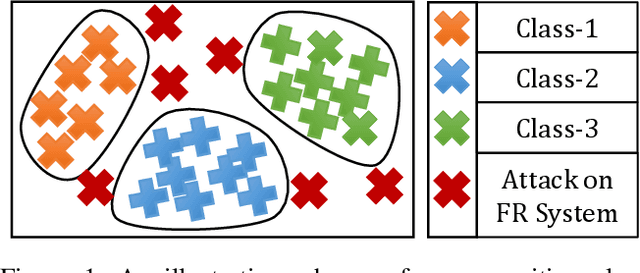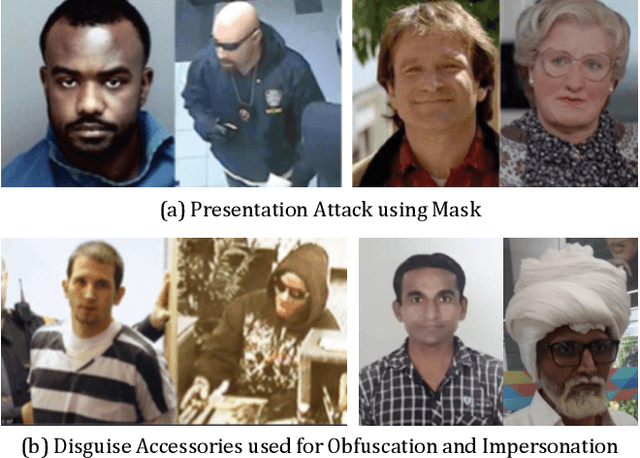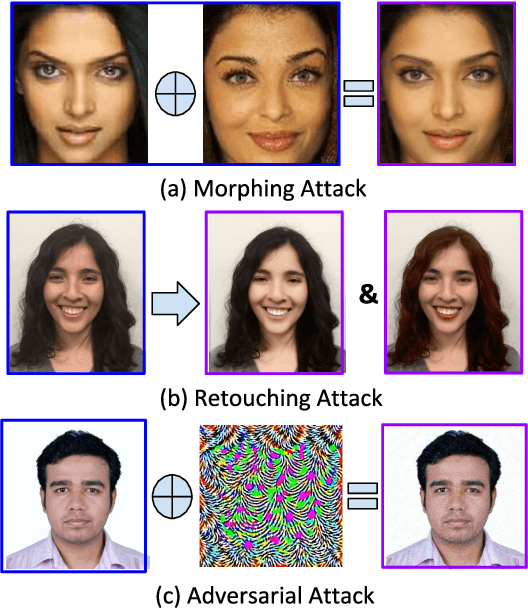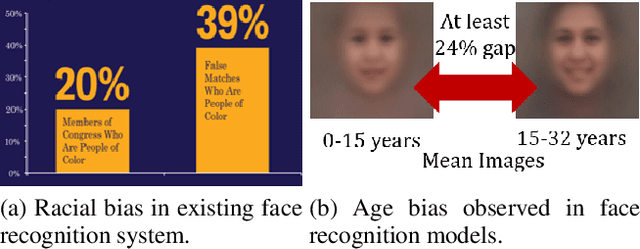On the Robustness of Face Recognition Algorithms Against Attacks and Bias
Paper and Code
Feb 07, 2020



Face recognition algorithms have demonstrated very high recognition performance, suggesting suitability for real world applications. Despite the enhanced accuracies, robustness of these algorithms against attacks and bias has been challenged. This paper summarizes different ways in which the robustness of a face recognition algorithm is challenged, which can severely affect its intended working. Different types of attacks such as physical presentation attacks, disguise/makeup, digital adversarial attacks, and morphing/tampering using GANs have been discussed. We also present a discussion on the effect of bias on face recognition models and showcase that factors such as age and gender variations affect the performance of modern algorithms. The paper also presents the potential reasons for these challenges and some of the future research directions for increasing the robustness of face recognition models.
 Add to Chrome
Add to Chrome Add to Firefox
Add to Firefox Add to Edge
Add to Edge